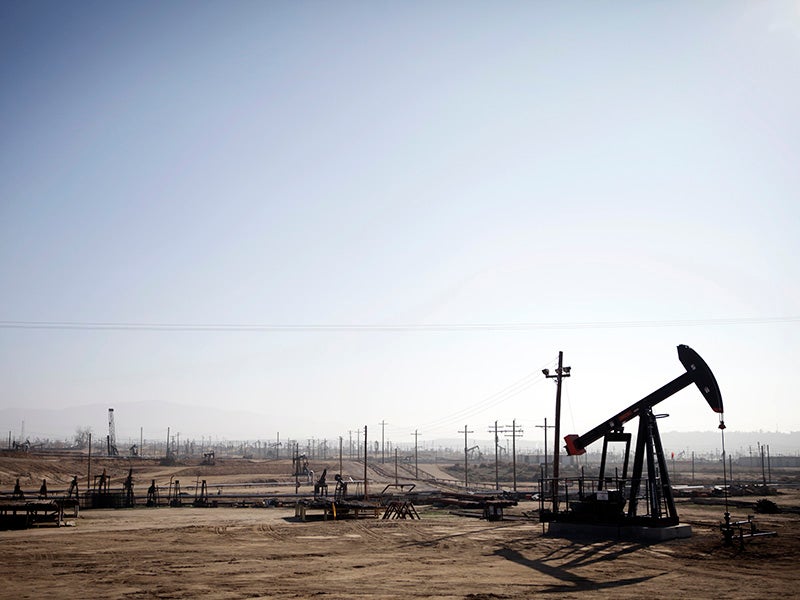One California County’s Fracked Idea
Kern County is the nation’s largest oil-producing county, and to keep on top it’s not going to let a little thing like public review of new oil and gas permits get in its way.

This page was published 10 years ago. Find the latest on Earthjustice’s work.
Which county in America produces the most oil? If you guessed somewhere in Texas, you’d be wrong. Alaska? Nope. Pennsylvania? Not even close.
It’s Kern County, California with around 42,000 active wells . California is the third largest oil producing state, behind Texas and North Dakota. The epicenter of the state’s oil boom is Kern County, which lies about 100 miles north of Los Angeles in the rural Central Valley. Kern is home to approximately 75 percent of California’s oil drilling and 95 percent of the state’s fracking, and regulators hope to keep the black gold flowing.
Last month, the county board of supervisors approved a new ordinance that would purportedly allow oil and gas companies to fast track drilling permits for tens of thousands of new wells in the next two decades with no environmental review and no public notice or participation. On Thursday, Earthjustice filed a lawsuit against Kern County on behalf of the Sierra Club and the Natural Resources Defense Council (NRDC), in coordination with the Center on Race, Poverty & the Environment and the Center for Biological Diversity. The Earthjustice suit challenges the county’s claim that a single environmental review conducted before the ordinance was passed is sufficient to authorize up to 3,647 new oil and gas wells a year for the next 20 years or longer, for a total of 72,000 new wells.
“Kern County cannot turn a blind eye to state-mandated environmental review for 20 years while appeasing the oil industry, all to the detriment of the health and safety of local communities. The law does not allow that,” said Earthjustice Staff Attorney Will Rostov. “Not only is that unprecedented and unlawful, but it’s an abuse of power. This is particularly problematic given the project’s disproportionate impact on Kern’s most vulnerable communities.”
NRDC found that 14 percent of Californians—5.4 million people—live within one mile of an oil or gas well. Of that group, 69 percent are people of color, most Hispanic or Latino. Low-income communities of color typically face disproportionate financial and health burdens from heavy industry, including oil and gas production. The new wells authorized by the Kern County plan would be built in an area that already has some of the nation’s worst air quality. According to the American Lung Association, Bakersfield, the largest city in Kern County, is the second worst city in the country for air pollution, both short-term and year-round.
Air pollution from oil and gas wells can exacerbate illnesses like asthma and high blood pressure, and fracking, specifically, has been linked to water pollution, which can occur when massive amounts of fracking wastewater laced with chemicals are injected deep underground. Just one barrel of fracked oil produces 10 barrels of contaminated waste water that must be disposed of.
“The board of supervisors put oil companies’ interests above my children’s health and the wellbeing of families across our community,” said Rodrigo Romo of the Committee for a Better Shafter, which is represented by the Center on Race, Poverty & the Environment. “We breathe this air and drink this water every day, but the county did nothing to protect us and other Kern communities from dangerous pollution. Today we challenge their actions to protect ourselves and future generations.”
Opposing the expansion of drilling and fracking in Kern County is part of Earthjustice’s long-term strategy to stop investments in dirty fossil fuel technology, strengthen environmental and health protections for communities and push clean energy projects like solar and wind farms as the best way forward for our nation. A major part of our focus is on making sure local governing boards like those in Kern County don’t write polluters a blank check.
Earthjustice bilingual press secretary Betsy Lopez-Wagner contributed to this blog post.